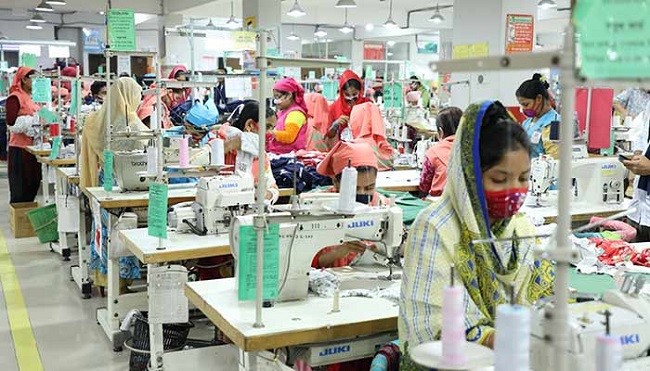Bangladesh government has reduced cash incentives in 43 sectors, including ready-made garments and leather, as part of preparations for transition from the list of Least Developed Countries (LDCs). After Corona, Russia-Ukraine and Israel-Hamas wars are straining the global economy. Again in Bangladesh, the cost of business is increasing day by day due to various reasons including the control of dollar price and gas crisis. At such a critical moment, the government’s decision to reduce cash assistance to exports will put RMG sector under great pressure.

Owners of Bangladesh’s main export sector, the garment industry, say the decision could have a major impact on small and medium-sized businesses in the sector. Potential to create alternative markets may be lost also.
Economists also say that the impact of cash assistance on exports will be negative. However, they also say that since the decision is being implemented over a long period of time, it will not have much of a negative impact. Rather, businessmen should move away from this incentive-based framework towards productivity and efficiency-based markets.
According to a notification of Bangladesh Bank on January 30, the export sector may face challenges if the export incentives/cash assistance are completely withdrawn after LDC graduation. That is why the government has decided to gradually reduce the rate of cash assistance/incentives in various phases from now on.
Earlier, cash assistance ranging from 1 percent to 20 percent of export earnings was provided to encourage exporters and make them more competitive in the international market. Now after the new announcement, the maximum rate is fixed at 15 percent and minimum at 0.5 percent. It has fixed this new rate of cash incentive against exports for the remaining six months of the current financial year 2023-24.
According to the International Trade Organization (WTO) regulations, no export incentives or cash assistance can be provided for transition from least developed countries. However, the export sector may face a challenge if the cash assistance is suddenly withdrawn after transition from LDCs. For that, the government has decided to reduce the cash assistance gradually from this year.
At present incentives are given at different rates in different sectors of the garment industry. These are 3% in lieu of tariff bonds and duty draw-backs, an additional 1% for exporters in the textile sector in the euro area, an additional 4% for all small and medium industries in the knit, woolen and sweater sectors, 3% as support for new products or market expansion. And special cash assistance at the rate of 0.50% to readymade garments sector.
On the other hand, exports to the three major new markets – Australia, India and Japan – were given a 4% incentive. In the new circular, these markets have been brought under the list of conventional markets, where the rate of cash assistance is 0.5 percent.
Faruque Hassan, president of BGMEA, said, “Initially, the incentive rate was reduced in 4 categories. Then finally, the government said that five HS (Harmonized System) code items will not get any incentive now. But these five items Apparel is an essential part of exports.”
He said, “We have to be competitive in foreign currency. International orders are already low. There is a shortage of dollars in the country. That’s why we have to figure out how to bring more dollars into the country. Our reserves have decreased to a point where we are having trouble opening LCs.”
“Due to this, it has become difficult to import raw materials. That’s why we said not to reduce the incentives. But, the government did not agree to it,” he added.
Mohammad Hatem, Executive President of BKMEA said, we also do not want incentives to be given. But in such a difficult situation in the world, the economy is in a mess. Our exports have gone down. At this time, incentives cannot be reduced or in some cases completely waived.
Fazle Shamim Ehsan, vice president of BKMEA said, “On the one hand, the government is focusing on our value addition. On the other hand, on the other hand, it is withdrawing cash support for value added products. This is not acceptable at all.”
BGMEA vice-president Md. Nasir Uddin told to media, we are under pressure. The pressure is that utility bills, workers’ salaries and interest on bank loans have increased. If the incentives are stopped now, this sector will come under pressure.
















